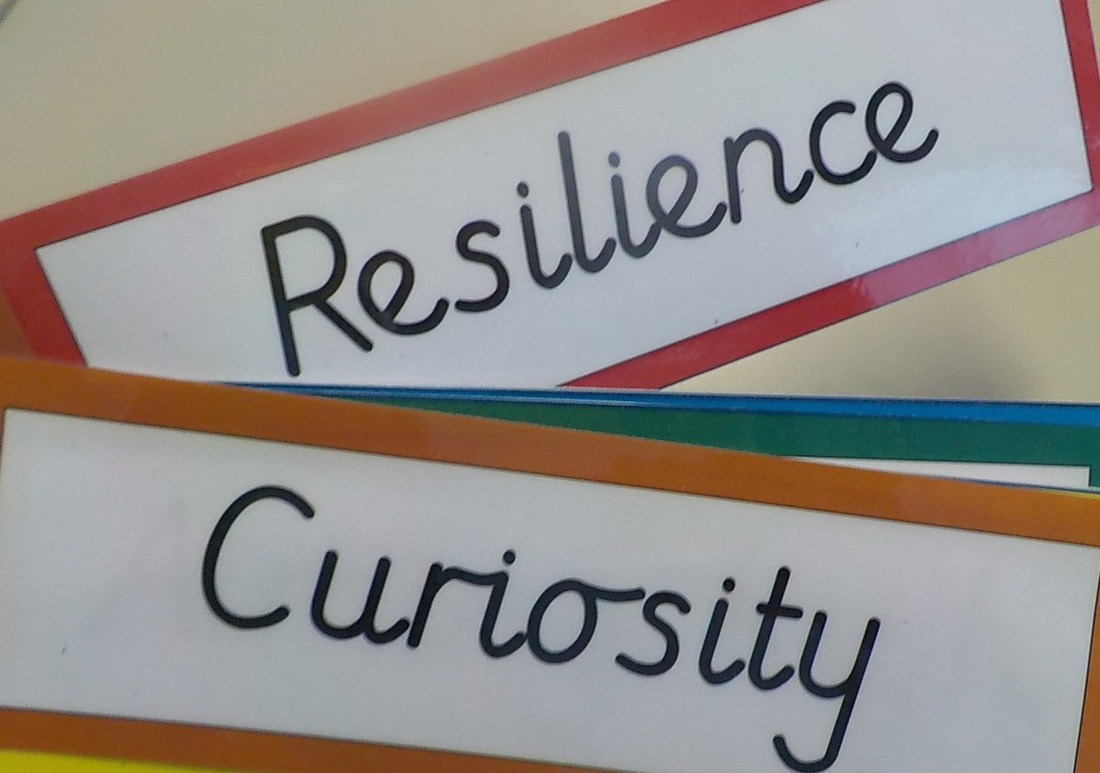|
‘I don’t know’, was my initial response to the first question following my presentation at the recent British Educational Research Association (BERA) conference. I had been talking about my doctoral research highlighting Year One children’s anxiety when they do not-know expected answers. Children must deal alone with their ‘emergency’ feelings, with schools instead stressing they be Resilient and Aim High. Such character education can encourage children to try harder but it can also be felt as a pressure. It demands children concentrate for long periods and constantly challenge themselves; they become responsible for their successes but also their failures. Five year old Amelie tells me resilience means ‘learning hard. . . trying again, again and again’. Staff are also expected to be resilient to meet changing government demands, but similarly feel the pressure that they are not doing their ‘best’ for the children. Male and middle class children are those most often rewarded and encouraged for their resilience and for aiming high, which serves to reinforce existing hierarchies rather than challenge structural barriers to education. Frances Howard identified something similar in her conference presentation on the Young People’s Arts Award. Working class or ‘dis-engaged’ young people are more likely to receive a didactic and tightly controlled model of teaching, what she calls a ‘pedagogy of poverty’, compared with the ‘pedagogy of possibilities’ available to other young people that includes real life engagement and open-ended tasks offering the affordances of being like an artist. The latter offers a vision of an education that is broader than resiliently adapting to existing conditions. It offers the possibility to challenge accepted wisdom and the taken-for-granted so that students might become something different as well as contribute to a more just society. It is a vision taken up by Paul Miller, in his keynote speech, in which he sounded the pressing need to tackle racism in educational leadership, with the call to move from ‘conformity, to conviction to change’.
The dominant classroom emphasis on learning what has been tightly defined, limits opportunities to move into areas where the answer is uncertain and open to different interpretations and possibilities. Becoming a doctoral student, I realise my previous education had not prepared me well for not-knowing, so that I feel my vulnerability when not-knowing the meaning of difficult academic papers, not-knowing what to make of my classroom observations and interviews, not-knowing how to consolidate a mass of research data into a thesis that contributes something of value. Slowly I begin to allow doubt and uncertainty to exist, so that I no longer aim to know too quickly or narrowly when deciding how to respond at each stage of the research. This is more about patience than perseverance or resilience; I take more time to meander in the classroom and my analysis. I began to shift from wanting to grasp the meaning of everything I read to experiencing the thrill of seeing how I might use a text to help me think more deeply about my own work. Tara Westover writes about such a shift in her recent memoir, Educated, in which she eloquently and disturbingly traces her upbringing in a fundamentalist Mormon family in the United States, one including physical abuse and neglect, and her move from being mostly self-educated at home to achieving a doctorate at the University of Cambridge. She discusses how at first her approach to reading Mormon texts was ‘to learn what to think, not how to think for myself’, and how she begins ‘to read books differently, without giving myself over to either fear or adoration’. There is a pivotal moment in the book, when Westover tentatively questions her brother’s assertion that she is responsible for her repeated abuse; writing in her diary she asks, ‘Could he not tell he was hurting me? I don’t know. I don’t know’. This moment of doubt signals the possibility for what Westover suggests some might call her ‘transformation’, but what she calls ‘an education’: ‘Not knowing for certain, but refusing to give way to those who claim certainty, was a privilege I had never allowed myself. My life was narrated for me by others. Their voices were forceful, emphatic, absolute. It had never occurred to me that my voice might be as strong as theirs’. The woman who asked me the question at BERA, a teacher educator, wanted to know what could be done to stop teachers putting stress onto children, adding that her own child had begun pulling out his hair a week before entering Year Six. She identifies an important challenge. Teacher performance has always been entangled with that of their students, but is felt acutely under the demanding accountability framework including the publication of SAT results, school league tables and Ofsted inspections. Addressing issues such as these requires on-going supportive discussions between policy makers, educators, parents and children, as well as researchers. My paper provided no definitive answers; it narrates important aspects of contemporary Year One classroom life that invites others to see what they might make of it.
0 Comments
Leave a Reply. |
AuthorPerpetua Kirby & Rebecca Webb Archives
November 2023
Categories |

 RSS Feed
RSS Feed